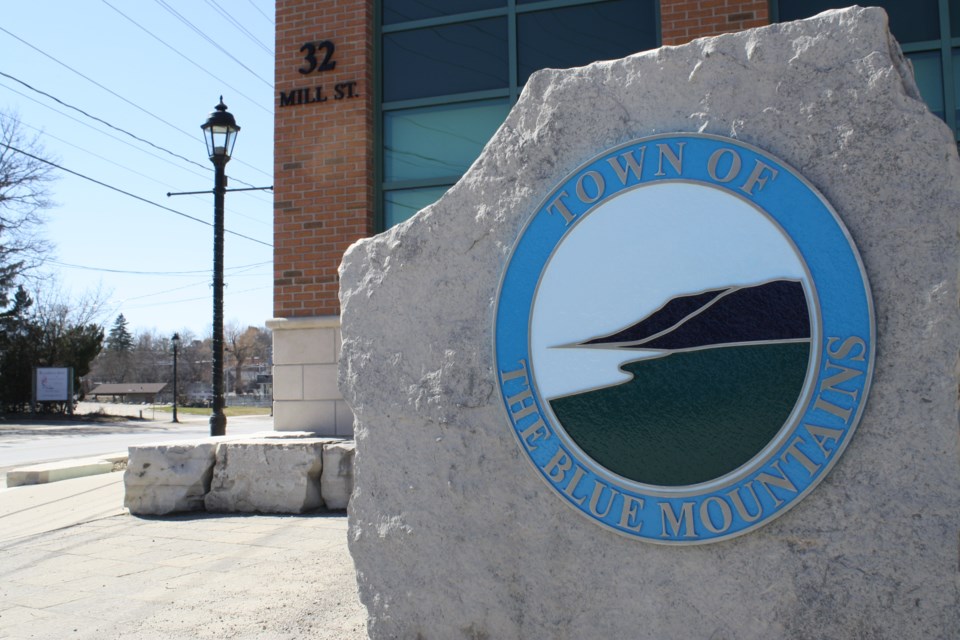The Town of The Blue Mountains (TBM) is working on a comprehensive parking bylaw to address parking issues that have grown over the course of the COVID-19 pandemic.
A staff report presented to council Nov. 22 notes that TBM’s outdoor recreation areas have been subject to increased visits over the course of the pandemic, placing strain on the town’s parking capacity and on the safety of its roadways.
The proposed bylaw would see a number of parking restrictions introduced through the pandemic become permanent, and would also see the price of fines for parking infractions increase dramatically.
“A lot of those restrictions proved to be pretty effective, and pretty popular, at kind of managing crowds and the impact of large crowds of people at some of our waterfront accesses and rural recreation areas,” said director of legal services Will Thomson.
Fines would increase from the current rate of $15-$27 per infraction to $50-$300 per infraction, with the $300 fine reserved for serious offences, such as parking within three metres of a fire hydrant or parking in a designated accessible parking space.
“Parking fines can't be punitive, they have to be set in order to promote compliance with our regulations,” explained Thomson.
“Even the $27 fines ... for many people, that was just the cost of parking at the waterfront, the cost of parking at a rural recreation area,” he said. “It just simply wasn't enough to actually promote reasonable compliance with our parking regulations.”
The proposed bylaw would bring enforcement of the fines out of the provincial offences system and into an administrative monetary penalty (AMP) system, which would give the town the ability to set its own fines, and would drastically reduce the time required to process fines.
The TBM staff report states that the provincial court is currently experiencing significant delays, leading to wait times of up to six months to process fines, whereas the AMP system could see the town process parking infractions within one to two months.
“It will bring the actual enforcement, take the actual judicial process out of the court system and into our own administrative penalty system, so it should be a much more efficient and timely system to actually get payment on parking infractions,” Thomson said.
The proposed bylaw would regulate numerous streets and parking zones throughout TBM, with a large number of streets outright banning parking.
“There's quite a few that [prohibit parking at] anytime, pages and pages of any time,” said councillor Peter Bordignon. “Is there an opportunity to do one side of the road or the other, or one- to two-hour parking, or in a tourist area maybe to limit near the dam, or near the curve in the road ... or [does] it just have to be blanket?”
“Where the road deck can accommodate one-sided parking, and there's adequate space for traffic to still get by, that's certainly something that we can look at,” Thomson said.
Councillor Jim Uram questioned whether the parking fines were in line with the county’s set fines.
“Are our fines going to be consistent with the county? I just want to make sure that there will be no disputes on the actual amounts that we'll be getting into,” he said.
Thomson noted there is variety in the fines applied within and beyond the county.
“I think our (proposed) fine around $50 for a typical ticket is maybe a little above average, but probably appropriate for the kind of parking management issues that we have throughout the town," said Thomson. “$300 for serious fire parking, disabled parking fines, that's pretty typical.”
Council directed staff to schedule a public meeting for feedback on the proposed bylaw for early 2022.



